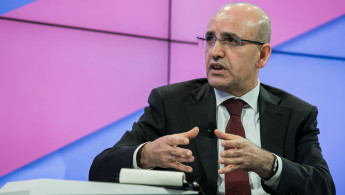Turkey suggests it can accept Assad remaining in power
Ankara - which has long opposed Assad and supported rebel forces in Syria - put the blame for the nearly six-year war that has killed hundreds of thousands of people "squarely on Assad," Deputy Prime Minister Mehmet Simsek said.
"As far as our position on Assad is concerned, we think that the suffering of (the) Syrian people and the tragedies, clearly the blame is squarely on Assad. But we have to be pragmatic, realistic," Simsek said during a panel discussion at the World Economic Forum in Davos, Switzerland.
"The facts on the ground have changed dramatically, so Turkey can no longer insist on a settlement without Assad, it's not realistic," he said.
Simsek added that his country has "high hopes" for Syrian peace talks planned next week and hosted by Turkey, Russia and Iran in Astana, Kazakhstan.
The talks, sponsored by Syrian regime allies Russia and Iran and rebel backer Turkey, will begin on Monday in Astana, Kazakhstan, and are expected to last less than a week.
Repeated attempts by world powers have failed to end Syria's war, which erupted nearly six years ago with widespread anti-Assad demonstrations.
Last year, the US and Russia worked together to put a temporary truce in place and sponsored several rounds of talks in Geneva, but they did not secure a political solution.
In late 2016, a new partnership between Moscow and Ankara emerged, despite their backing for opposite sides in the conflict.
They secured a fragile ceasefire deal that went into force on December 30, and the Astana talks will be the first real test of their joint efforts.
The two powers have said US President-elect Donald Trump's administration should attend the talks, but Iranian officials have voiced strong objections to Washington's presence.
Agencies contributed to this report.





 Follow the Middle East's top stories in English at The New Arab on Google News
Follow the Middle East's top stories in English at The New Arab on Google News

![Israeli forces ordered bombed Gaza's Jabalia, ordering residents to leave [Getty]](/sites/default/files/styles/image_330x185/public/2176418030.jpeg?h=a5f2f23a&itok=_YGZaP1z)
